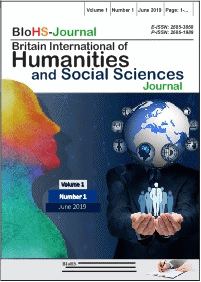Comparison of Shahrur's Hermeneutics and Salaf Tafsir
Abstract
This study aims are to find out comparison of shahrur's hermeneutics and salaf tafsir. The methodology of the interpretation of Shahrur and the Salaf Ulama will be seen as well as some of the results of Islamic law that were born from this methodology. The result of this study shows that Shahrur is one of the Muslim thinkers who tries to make a breakthrough for this new understanding with all his weaknesses and strengths, more or less he is able to open our doors or eyes to see other things (possibilities of other meanings) beyond the reality that exists in the traditions of the salaf manhaj which is considered by most people as something that has been established and seems undeniable or unthinkable, the corpus is closed in Arkoun's view. Shahrur has tried to declare that al-Quran, al-Kitab, al-Furqan are not the same (have different meanings), based on the context of modern science which turns out that there is no synonym in language (basically all words are different). As a result, the terms al-Zikr, Tanzil, Tartil, Thab'u al-Mathani, Muhkam, Mutashabih and others were also reconstructed by Shahrur with a different linguistic analysis than before. The offer of this thought is legitimate especially since the Prophet Muhammad himself did not define the terms clearly and consistently. From his book we can see the differences in the methodology of the interpretation of Shahrur and the Salaf both in terms of epistemology, paradigm and the side of the knowledge used to interpret. From an epistemological point of view, Shahrur prefers to use sources of interpretation, namely reason, reality and human scholarship in today's century in dialogue with the Qur’an, which is different from the salaf who stick to the interpretation of the Prophet and his companions (the early recipients of the Qur’an). As a result, Shahrur differs in defining the terms of the Qur’an with the salaf such as the terms of the Qur’an, al-Kitab, al-Furqan and others.
Downloads
References
Abi Tahir bin Ya’kub al- Fairuj al-Abadiy, Tanwir al-Muqbas Min Tafsir Ibnu Abbas (Beirut: Dar al-Fikr, 2001 M – 1421 H
Adian Husaini, Hermeneutika dan Tafsir Alquran (Jakarta : Gema Insani Press, 2007)
Adnin Armas, Metodologi Bible Dalam Studi Alquran (Jakarta : Gema Insani, 2005 )
Charles Kurzman, edit., Islam and 1995 Beijing World Conference on Women dalam Liberal Islam (New York: Oxford University Press, 1998)
Eric Gottfrid Swedin, Science In the Contemporary World: An Encyclopedia (California: Santa Barbara, 2005)
Gamal al-Banna, Tafsir al-Qur’an al-Karim Baina al-Qudama’ wa al-Muhaddithin, alih bahasa oleh Novriantoni Kahar (Jakarta: Qisthi Press, 2004), Cet I
Ibnu Taimiyah, Muqaddimah fi Ushul al-Tafsir (Beirut : Dar al-Fikr, 1982)
Muhyar Fanani, Fiqh Madani (Yogyakarta : LKIS , 2010), Cet II
Musa Asy’ari, Filsafat Islam,
Peter Godfrey-Smith, Theory and Reality: An Introduction To The Philosophy Of Science (USA: The University of Chicago Press, 2003)
Quraish Shihab, Wawasan Alquran (Bandung: Mizan, 2005), Cet XVI
Rosihan Anwar, Ilmu Tafsir (Bandung: Pustaka Setia, 2005)
Shahrur, Muhammad, Al-Kitab wa al-Qur’an: Qira’ah Mu‘ashirah (Damshiq: Shirkah al-Matbu‘ah al-Ahali li al-Tauzi’ wa al-Nashr, 2000), Cet VI.
Stephen Hendrick Kaisler, Software Paradigms (Canada: John Wiley and Sons, 2005)
Suyuthi, al-Itqan fi Ulum al-Qur’an, Jilid II (Madinah: Majma’ Mamlakah Suudiyah, T.th)



.png)
_.gif)
















_.gif)












